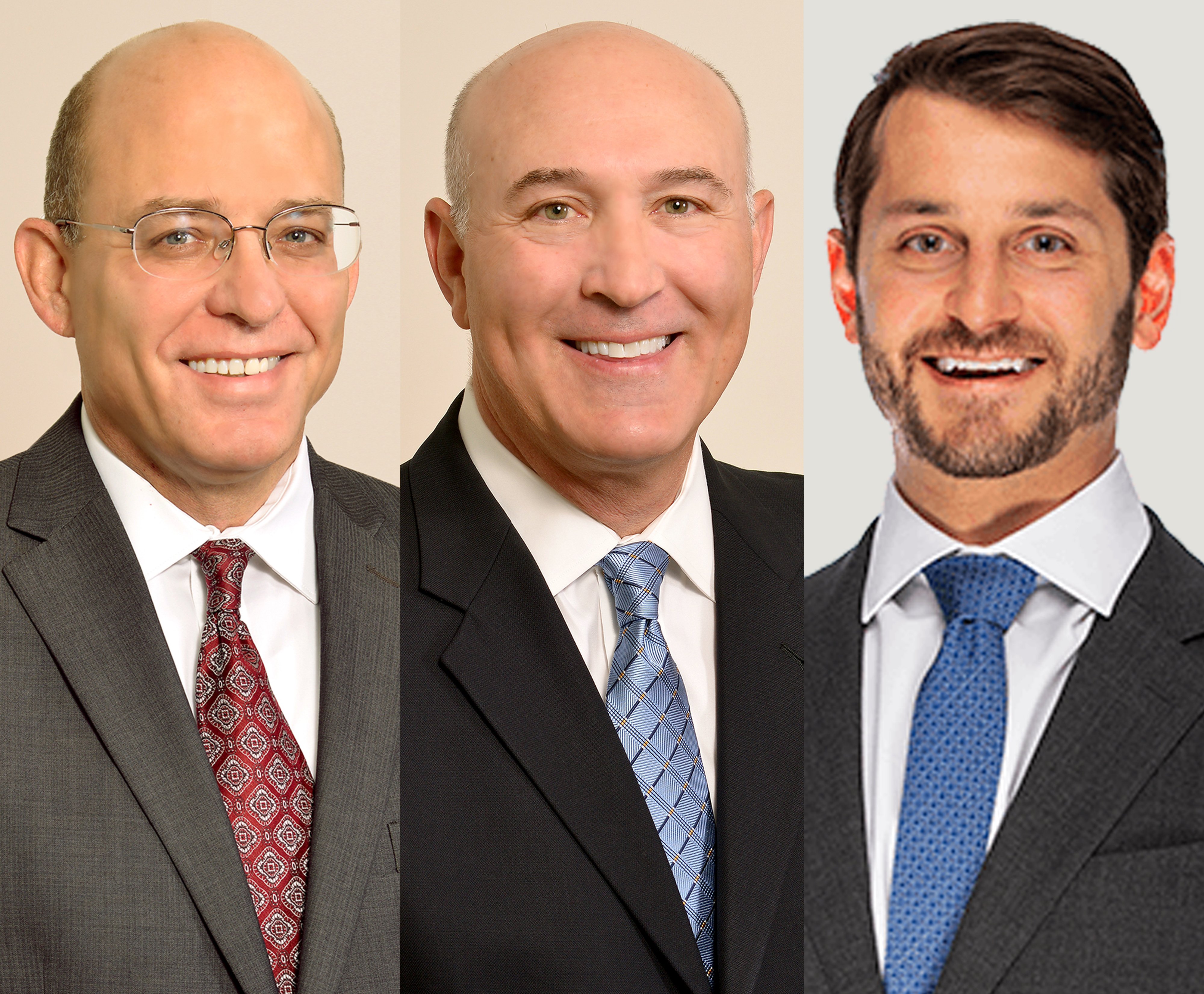Battles Continue as Florida Race Instruction Law Takes Effect
The amended lawsuit added as a plaintiff a Ben & Jerry's franchisee, whose employees are required to attend monthly corporate training sessions provided by Ben & Jerry's. It said the law would force changes to the training sessions.
July 05, 2022 at 09:51 AM
4 minute read
 A Ben & Jerry's franchisee is among the plaintiffs. Credit: ColleenMichaels/Adobe Stock
A Ben & Jerry's franchisee is among the plaintiffs. Credit: ColleenMichaels/Adobe Stock As a new state law dubbed the "Stop WOKE Act" took effect Friday, businesses and a university professor continued battling to block its restrictions on how race-related concepts can be addressed in workplace training and schools.
Businesses, including a franchisee of the Ben & Jerry's ice-cream chain, asked a federal judge Thursday to issue a preliminary injunction against the law. Meanwhile, a University of Central Florida professor continued to pursue a separate challenge.
In both cases, the plaintiffs argue the law, a priority of Gov. Ron DeSantis, violates First Amendment rights.
"The act silences speech aimed at combating racism and sexism — speech that is vital to the plaintiffs' operation of their businesses," the preliminary-injunction motion filed Thursday by three businesses and an individual plaintiff said. "The governor, and the Florida Legislature acting at his behest, has repeatedly sought to punish companies who have engaged in speech that displeases him, in flagrant violation of the First Amendment. Because Governor DeSantis is not a monarch, but rather a democratically elected official, the Stop WOKE Act cannot stand."
The law (HB 7), which DeSantis signed April 22, spurred fierce debates before passing during this year's legislative session. DeSantis called it the "Stop Wrongs To Our Kids and Employees Act," or Stop WOKE Act.
The law lists concepts that would constitute discrimination if they show up in classroom instruction or workplace training.
For example, it makes it illegal to compel people in workplace training to believe that an "individual, by virtue of his or her race, color, sex, or national origin, bears personal responsibility for and must feel guilt, anguish, or other forms of psychological distress because of actions, in which the individual played no part, committed in the past by other members of the same race, color, sex, or national origin."
When he signed the bill during a ceremony at a Hialeah Gardens charter school, DeSantis stood behind a placard that said "freedom from indoctrination."
"We believe an important component of freedom in the state of Florida is the freedom from having oppressive ideologies imposed upon you without your consent, whether it be in the classroom or whether it be in the workplace. And we decided to do something about it," DeSantis said at the time.
The law, like nearly 150 others that passed this year, took effect Friday.
Teachers, a student, a university professor and a diversity consultant filed a lawsuit in April to challenge the constitutionality of the law. But Chief U.S. District Judge Mark Walker on Monday largely denied a request for a preliminary injunction because he said the teachers, student and consultant did not have legal standing.
But Walker left unresolved issues related to Robert Cassanello, an associate history professor at the University of Central Florida, because the state university system's Board of Governors was slated Thursday to take up a proposed rule that would help carry out the law. Walker ordered attorneys on both sides to file briefs about whether the proposed rule could affect Cassanello's legal standing.
The Board of Governors moved forward with the proposed rule Thursday and is expected to take it up again Aug. 26. As of Friday morning, Walker had not ruled about whether Cassanello has standing to pursue the case, according to an online docket.
Meanwhile, businesses filed a second challenge June 22. Their attorneys followed up Thursday with an amended version of the lawsuit and the motion for a preliminary injunction.
The amended lawsuit added as a plaintiff Primo Tampa, LLC, a Ben & Jerry's franchisee. The other plaintiffs are Honeyfund.com, Inc., a Clearwater-based technology company that provides wedding registries, and Chevara Orrin and her company, Collective Concepts, LLC. Orrin and her company provide consulting and training to employers about issues such as diversity, equity and inclusion.
The motion for a preliminary injunction said, for example, that Primo Tampa employees are required to attend monthly corporate training sessions provided by Ben & Jerry's. It said the law would force changes to the training sessions.
"Primo believes it is critical to educate its employees about implicit bias and the need for restorative justice so they can better understand its organizational culture, function more effectively as a team and provide true hospitality to customers," said the motion, filed by attorneys from the national group Protect Democracy and the global law firm Ropes & Gray.
NOT FOR REPRINT
© 2025 ALM Global, LLC, All Rights Reserved. Request academic re-use from www.copyright.com. All other uses, submit a request to [email protected]. For more information visit Asset & Logo Licensing.
You Might Like
View All
Million-Dollar Verdict: Miami Jury Sides With Small Business

2,000 Docket Entries: Complex South Florida Dispute Sets Precedent


Miami-Dade Litigation Over $1.7 Million Brazilian Sugar Deal Faces Turning Point
3 minute readLaw Firms Mentioned
Trending Stories
Who Got The Work
J. Brugh Lower of Gibbons has entered an appearance for industrial equipment supplier Devco Corporation in a pending trademark infringement lawsuit. The suit, accusing the defendant of selling knock-off Graco products, was filed Dec. 18 in New Jersey District Court by Rivkin Radler on behalf of Graco Inc. and Graco Minnesota. The case, assigned to U.S. District Judge Zahid N. Quraishi, is 3:24-cv-11294, Graco Inc. et al v. Devco Corporation.
Who Got The Work
Rebecca Maller-Stein and Kent A. Yalowitz of Arnold & Porter Kaye Scholer have entered their appearances for Hanaco Venture Capital and its executives, Lior Prosor and David Frankel, in a pending securities lawsuit. The action, filed on Dec. 24 in New York Southern District Court by Zell, Aron & Co. on behalf of Goldeneye Advisors, accuses the defendants of negligently and fraudulently managing the plaintiff's $1 million investment. The case, assigned to U.S. District Judge Vernon S. Broderick, is 1:24-cv-09918, Goldeneye Advisors, LLC v. Hanaco Venture Capital, Ltd. et al.
Who Got The Work
Attorneys from A&O Shearman has stepped in as defense counsel for Toronto-Dominion Bank and other defendants in a pending securities class action. The suit, filed Dec. 11 in New York Southern District Court by Bleichmar Fonti & Auld, accuses the defendants of concealing the bank's 'pervasive' deficiencies in regards to its compliance with the Bank Secrecy Act and the quality of its anti-money laundering controls. The case, assigned to U.S. District Judge Arun Subramanian, is 1:24-cv-09445, Gonzalez v. The Toronto-Dominion Bank et al.
Who Got The Work
Crown Castle International, a Pennsylvania company providing shared communications infrastructure, has turned to Luke D. Wolf of Gordon Rees Scully Mansukhani to fend off a pending breach-of-contract lawsuit. The court action, filed Nov. 25 in Michigan Eastern District Court by Hooper Hathaway PC on behalf of The Town Residences LLC, accuses Crown Castle of failing to transfer approximately $30,000 in utility payments from T-Mobile in breach of a roof-top lease and assignment agreement. The case, assigned to U.S. District Judge Susan K. Declercq, is 2:24-cv-13131, The Town Residences LLC v. T-Mobile US, Inc. et al.
Who Got The Work
Wilfred P. Coronato and Daniel M. Schwartz of McCarter & English have stepped in as defense counsel to Electrolux Home Products Inc. in a pending product liability lawsuit. The court action, filed Nov. 26 in New York Eastern District Court by Poulos Lopiccolo PC and Nagel Rice LLP on behalf of David Stern, alleges that the defendant's refrigerators’ drawers and shelving repeatedly break and fall apart within months after purchase. The case, assigned to U.S. District Judge Joan M. Azrack, is 2:24-cv-08204, Stern v. Electrolux Home Products, Inc.
Featured Firms
Law Offices of Gary Martin Hays & Associates, P.C.
(470) 294-1674
Law Offices of Mark E. Salomone
(857) 444-6468
Smith & Hassler
(713) 739-1250






